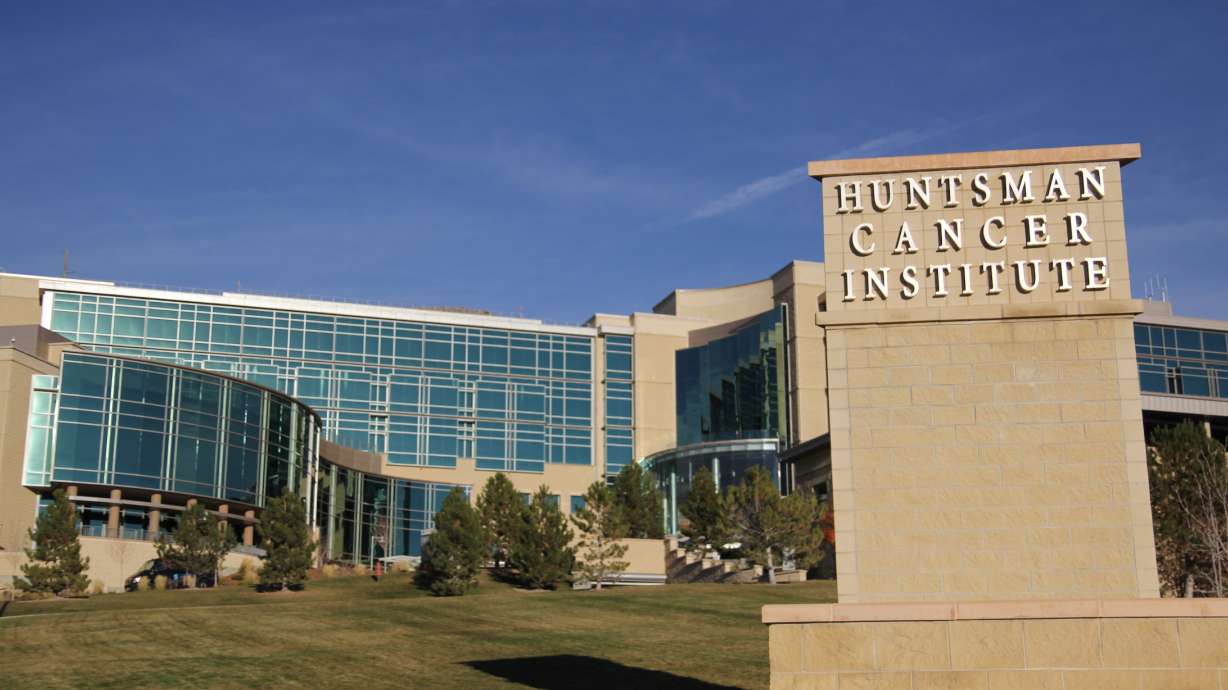Estimated read time: 3-4 minutes
This archived news story is available only for your personal, non-commercial use. Information in the story may be outdated or superseded by additional information. Reading or replaying the story in its archived form does not constitute a republication of the story.
SALT LAKE CITY — A new medication helps men suffering from one of the deadliest forms of cancer live longer, a Huntsman Cancer Institute doctor said.
Advanced prostate cancer is the second highest cause of cancer deaths in American men, second only to lung cancer. Less than 30 percent of men will survive after five years when prostate cancer spreads to other parts of the body, according to Dr. Neeraj Agarwal, a professor of medicine, physician and investigator at the Huntsman Cancer Institute.
But a new drug called apalutamide could change that.
The TITAN trial, which began in 2015, studied the safety and effectiveness of the medication. It targets the protein that drives cancer cells in men who have advanced prostate cancer, Agarwal said.
"So you're basically attacking a protein which is allowing the prostate cancer cell to multiply and metastasize and progress to different parts of the body," Agarwal explained. He participated in the study since its planning phase.
In those treated with apalutamide, researchers saw a 33 percent reduction in risk of death and a 52 percent reduction in risk of disease production. Side effects caused by the drug were well tolerated, Agarwal said.
The drug also delays the disease's progression and the need for chemotherapy.
During the clinical trial — which included more than 1,000 participants with newly diagnosed prostate cancer — some were treated with apalutamide and standard cancer treatment, while others received only standard treatment.
After the "stringent" trial, researchers this year learned that the men treated with apalutamide "were living much longer" as compared to those receiving only standard treatment, Agarwal said.
Patients receiving a placebo have now been allowed to cross over to the real drug, according to the doctor.
Noting developments doctors have made in cancer research, Agarwal said the findings weren't that surprising.
"The beauty of doing clinical trials, the most attractive part of doing clinical trials in today's time is that we're not really thinking of unknown chemicals … and hoping for a good result. Nowadays, clinical trials are using those medications which are very cleverly designed inside these laboratories after unraveling the key molecular drivers of cancer progression."
After recognizing the drivers, doctors can create a drug to target them.
"As opposed to 10 to 15 years ago, when clinical trials were using relatively not-so-smart molecules, the results of the clinical trials used to be less certain. Now you know you are hitting the right target," he said.
The drug was approved a few months ago for a "very small patient population" of those in later stages of prostate cancer, Agarwal said. But the TITAN trial's results could make the drug available to hundreds of thousands more men worldwide.
Apalutamide is awaiting approval from the United States Food and Drug Administration for use among those with newly diagnosed advanced prostate cancer. Agarwal expects that to happen before the end of the year.
The findings of the trial were also significant because doctors won't need state-of-the-art infrastructure to prescribe the drug. Doctors who work in small towns, away from large cancer centers, will be able to prescribe it.
"The beauty of this oral pill is it's easy to prescribe, it's easy to take, and the side effects are not more than what you see with the standard therapy right now," Agarwal said. "I call these advances paradigm-shifting advances."
"It's a real advance because this allows my patients and patients all over the world to take a bottle of oral pills from their doctors, go home, and take the medications by themselves," he added.
Agarwal said it's a "matter of pride" for him that Huntsman Cancer Center played a large part in studying a drug that "is so well-tolerated, improving lives and quality of life."









